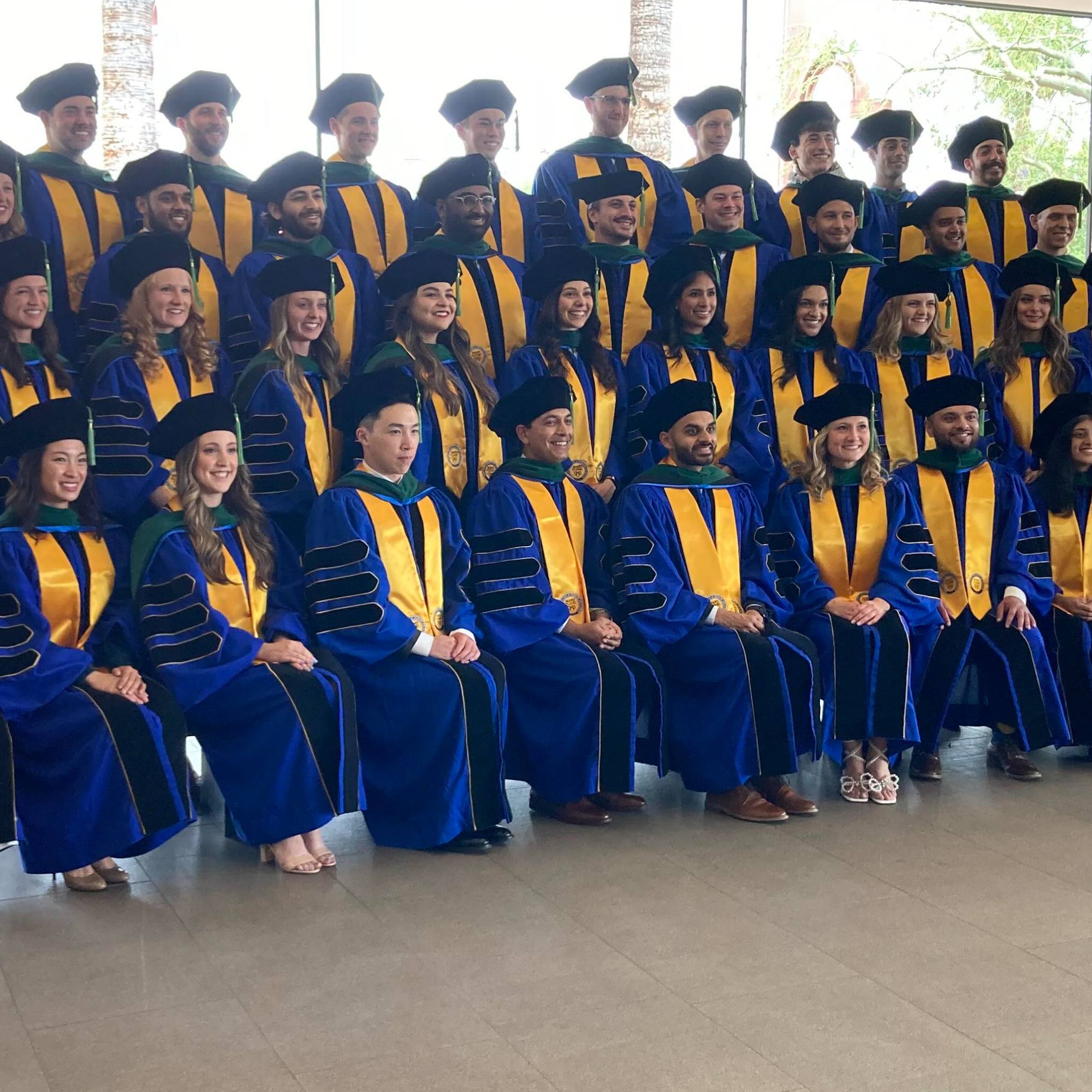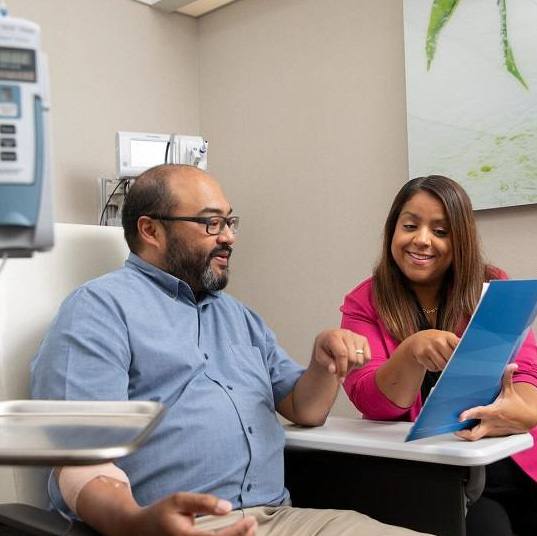-
Research
Mayo Clinic patients find hope in individualized medicine in 2023

In a remarkable year of medical advancements and discoveries, the Mayo Clinic Center for Individualized Medicine has touched the lives of many patients. From groundbreaking treatments to life-changing diagnoses, the stories of these patients highlight the profound impact of Mayo Clinic’s innovative and personalized approaches. Here is a look back at some notable patient journeys from 2023.
Mayo Clinic discovery leads to life-changing treatment for young girl with ultra-rare disease
Months after young Maggie Carmichael started taking an experimental drug for her ultra-rare genetic disease, she was able to trade in her wheelchair for a walker. The 9-year-old Mayo Clinic patient even took a few of her first-ever steps on her own. She also became better at feeding herself, her speech improved, and she started coloring in the lines. Maggie’s treating physician is Eva Morava-Kozicz, M.D. Ph.D., a translational scientist at Mayo Clinic who is at the forefront of research on congenital disorders of glycosylation. In a recent breakthrough, Dr. Morava-Kozicz and collaborators identified a key factor in congenital disorders of glycosylation. This discovery not only offered a diagnostic biomarker but also provided a strategic foundation for exploring potential drug candidates for Maggie.
In a first, Mayo Clinic treats cardiology patient with phage therapy
Mark Ulland, a Mayo Clinic patient, recently received a lifesaving combination of phage therapy followed by a heart transplant. It is the first time Mayo Clinic has ever used phages to treat a cardiology patient. Mark's long journey back to health began when his heart was failing, and the device implanted to keep him alive had become chronically and severely infected. That's when Gina Suh, M.D., urgently stepped into action. Dr. Suh is director of Mayo Clinic's Phage Therapy Program, which was launched by the Center for Individualized Medicine in 2019.
Mayo Clinic researchers use new innovative technology to diagnose teen brothers with ultra-rare genetic disorder
Emery and Aiden Diffendorfer were among the first to receive a diagnosis of their rare genetic disorder with the help of Mayo Clinic's new automated system called RENEW, which launched in 2022. RENEW tracks newly published discoveries of disease-causing genetic variants from around the world. The scientific findings are automatically uploaded into Mayo's system every three months. So far, more than 20 Mayo Clinic patients with rare and undiagnosed diseases have received a definitive diagnosis with the help of RENEW.
Genetic testing reveals cause of patient’s mysterious lifelong illness
The Division of Rheumatology and the Center for Individualized Medicine's Program for Rare and Undiagnosed Diseases recently provided a conclusive and life-changing rare disease diagnosis to Andy Grundstad, 35, who had lived with debilitating symptoms since childhood that defied both a diagnosis and treatment. Andy came to Mayo Clinic after having a second stroke, along with ongoing fevers, joint pain and loss of energy. The multidisciplinary Mayo Clinic teams worked together, using genomic testing to reveal a deficiency of adenosine deaminase 2, a protein that supports the lining of blood vessel wall. His diagnosis led to a targeted treatment plan, resulting in symptom relief and renewed energy.
CAR-T cell therapy restores hope for leukemia patient
Jon Stahlecker had exhausted all treatment options and lost hope of surviving chronic lymphocytic leukemia (CLL) before the Mayo Clinic offered him chimeric antigen receptor-T cell therapy (CAR-T cell therapy) in a clinical trial. Recognizing CAR-T cell therapy as his last option, the Wausau, Wisconsin, native enrolled in the trial in the fall of 2019. A baseline bone marrow test done before his infusion showed 80% of his cells were cancerous. Sixty days later, a bone marrow biopsy found no trace of cancer. He's remained cancer-free for three-and-a-half years.
Patient turns to Mayo Clinic to defy family legacy of early heart attack deaths
Brandon Wilson, 38, was just two years old when his father died of a heart attack. It marked the beginning of a sorrowful pattern, with almost all the men in his family dying of heart attacks before reaching the age of 40. Since childhood, Brandon has known that he too carries the hereditary high cholesterol condition called familial hypercholesterolemia, which significantly increases the risk for early-onset heart disease, heart attacks and stroke. Brandon had accepted that his fate was sealed, until he found Mayo Clinic, and hope. Equally important to the integrated care he receives, Brandon says his optimism is also centered on the cutting-edge research underway at the Mayo Clinic Center for Individualized Medicine.
Mayo Clinic’s DNA study reveals BRCA1 mutations in 3 sisters, prompts life-changing decisions
Three sisters from Minnesota — Chris, Cindy and Carrie — recently learned they share a genetic mutation known to significantly increase the risk for breast and ovarian cancer. Their BRCA1 variants came to light through the Center for Individualized Medicine's Tapestry DNA sequencing study. The study underscores the importance of genetic screening, prompting preventative actions. The sisters' diagnoses have prompted each of them to take preventative actions for themselves, and their families.
Looking ahead to 2024, the Mayo Clinic Center for Individualized Medicine will continue ongoing efforts to pioneer innovation and advance medical knowledge to improve treatment outcomes across diverse patient populations.
Learn more
Read more stories about advances in individualized medicine.
Register to get weekly updates from the Mayo Clinic Center for Individualized Medicine blog.
Join the conversation
For more information, visit Mayo Clinic Center for Individualized Medicine, or Twitter at @MayoClinicCIM.















